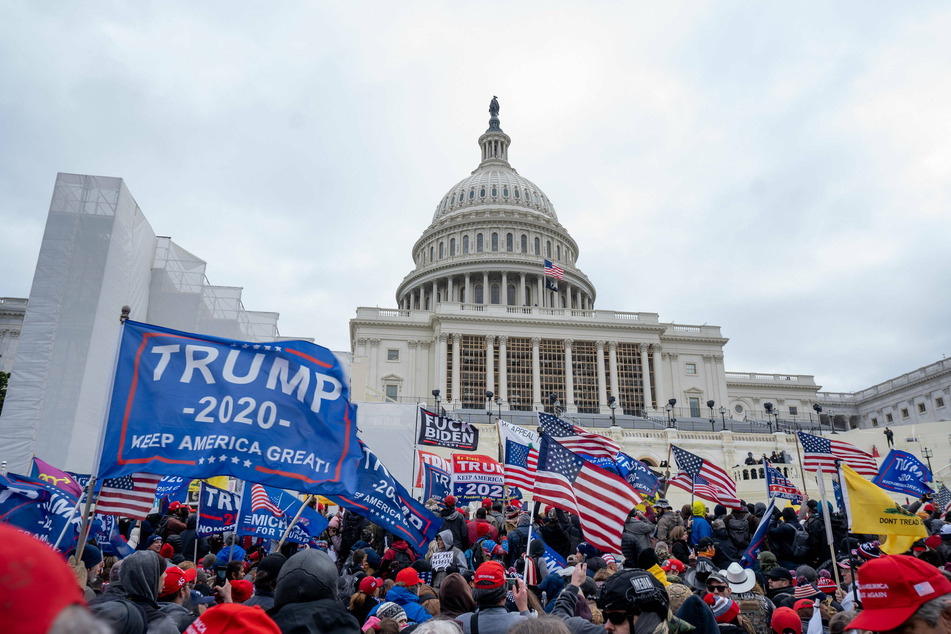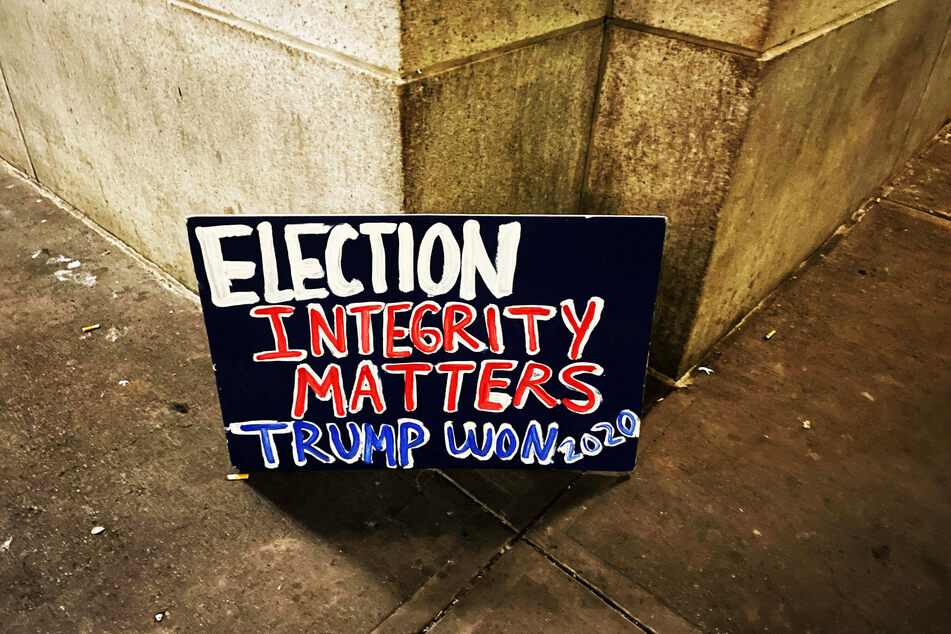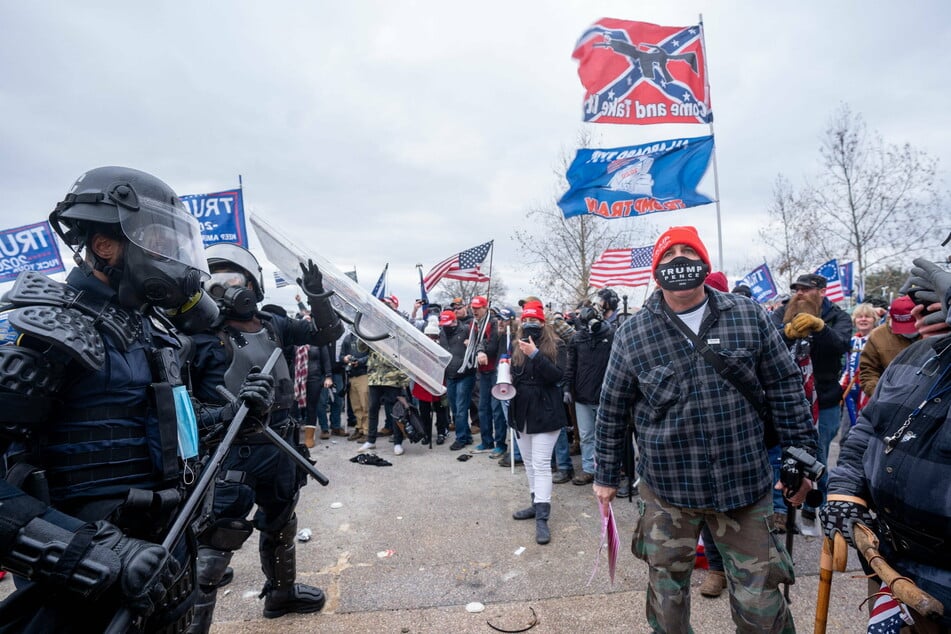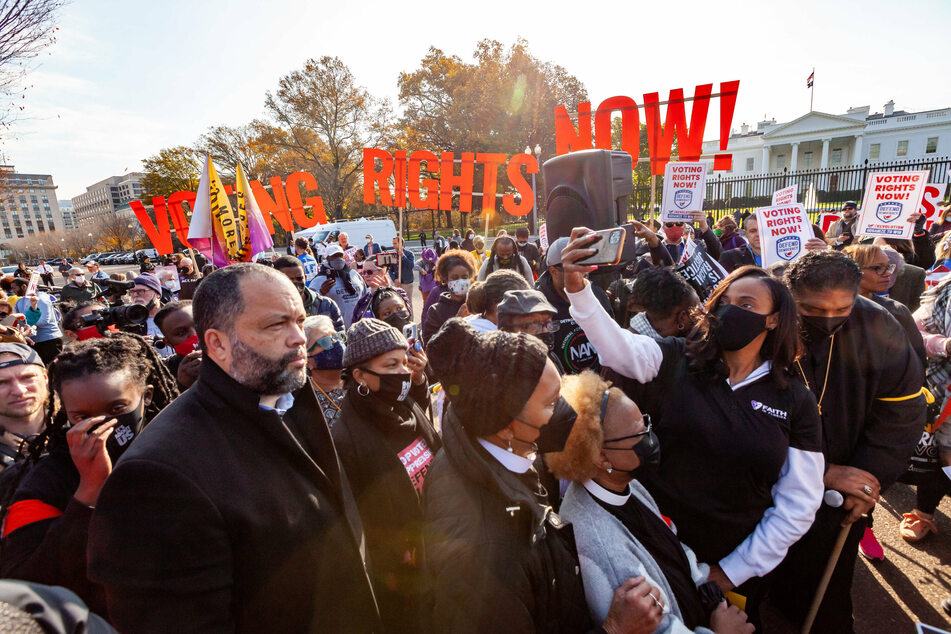Capitol riot: One year later, it's voting rights that are still under attack
Washington DC - On January 6, 2021, a violent mob stormed the US Capitol to disrupt the certification of Joe Biden's electoral victory. Fast forward one year, and the threat to equal representation persists.

On January 5, 2021, Democrats were celebrating their double victory in the Georgia Senate runoffs. Jon Ossoff and Raphael Warnock had defeated their Republican challengers and delivered a majority in the upper chamber to Democrats.
That meant that Democrats would control the presidency and Congress after Inauguration Day on January 20 – a huge win after a tough election season dominated by the coronavirus pandemic.
The following day, Donald Trump held a rally in DC, where he repeated false claims that he did not lose the 2020 presidential election and that the victory had been "stolen" from him.
Fired up by the then president's incendiary rhetoric, the rioters began their fateful march to the Capitol building, where lawmakers were preparing to certify the 2020 election results. Footage shows Trump supporters threatening to execute Democratic politicians and take back the White House by any means necessary.
During the events of that day, two rioters died of heart attacks and another of an accidental overdose. A 35-year-old woman was fatally shot by police as she tried to force entry into the Capitol.
Four security officers took their own lives in the aftermath, and one died as a result of injuries sustained during the riot.
Republicans capitalize on election fraud myth

Repeated claims that the election was rigged did more than just incite a deadly attack on the Capitol. They also emboldened Republicans to weaponize that myth for their own advantage.
GOP-controlled states around the country pushed through a slew of "election integrity" bills in 2021, arguing that they were doing so in order to address unchecked voter fraud.
In reality, these were thinly veiled attempts to suppress the voices of people who typically vote blue, including many voters of color.
The real problem with our election system has nothing to do with alleged fraud, which experts say is minimal.
Strict ID laws, voter roll purges, accessibility issues, partisan gerrymandering, and the unrestrained influence of big money in politics do far more damage when it comes to having a functioning democracy based on the principle of equal representation.
If Republicans really cared about election integrity, they would seek to dismantle the barriers that prevent US citizens from exercising their right to vote.
Instead, they are focusing their energies on further disenfranchising eligible voters – all in an effort to maintain their own power.
White supremacy and voter disenfranchisement

Voter suppression does not affect all people equally. Black and brown Americans suffer disproportionately under restrictive election laws.
Historically in the US, whenever marginalized groups have won greater representation in our society, there have been violent outbursts and crackdowns in an attempt to uphold the structures of white supremacy.
Images of the rioters brandishing Confederate flags – the battle flag of the slave-holding South – are a stark reminder of the extent to which white supremacy is woven into the very fabric of our nation.
Efforts by state legislatures to cement those racial inequities through restrictive voting laws that disparately impact voters of color illustrate the institutional nature of that discrimination.
Voting is about more than just checking off a few boxes on a ballot. It's about who has a say in how our society functions. That, in turn, determines the people to whom those decision-makers ultimately feel accountable and in whose interests they will act.
January 6 and its aftermath were not a radical departure from the past. Rather, they were the latest expression of America's dark history of racial violence and disenfranchisement – and the extent people will go to hold on to whatever sense of power they have, even if it comes at others' expense.
Looking forward

As Republicans have tried to clamp down on voter participation after January 6, Democrats have sought to expand it by passing comprehensive reforms at the federal level.
But with control of the House, the Senate, and the presidency, they have still failed to deliver a single voting rights bill in the year since the insurrection.
Senate Republicans have repeatedly blocked any voting rights legislation that came their way. With the filibuster in place, 60 Senate votes are required to pass most bills, meaning that Democrats would need to find at least 10 GOP allies.
Democrats are facing increased pressure to lift the filibuster to expand ballot access for Americans around the country, especially since the start of the 2022 midterm year. While initially reluctant, President Biden has since voiced his support for bypassing the normal rules in order to get a voting rights bill through.
Senate Majority Leader Chuck Schumer has also committed to reviewing options to change filibuster rules for this purpose.
But even among Democrats, there isn't consensus on the best way forward. Conservative members of the party, including West Virginia Senator Joe Manchin and Arizona Senator Kyrsten Sinema, appear unlikely to sign on to a one-time exception to filibuster rules.
Any change would need the approval of all Senate Democrats, meaning that the fate of voting rights could once again rest in the hands of two lawmakers who seem to show no accountability toward their constituents or hesitation to tank their party's agenda.
The failure to guarantee that all US citizens have an equal opportunity to vote – and to reckon with the structures of white supremacy that permeate our institutions – will continue to harm, first and foremost, Black and brown communities.
For that reason, the need for comprehensive voter protections is just as great – if not greater – than it was one year ago today.
Cover photo: IMAGO / ZUMA Press

